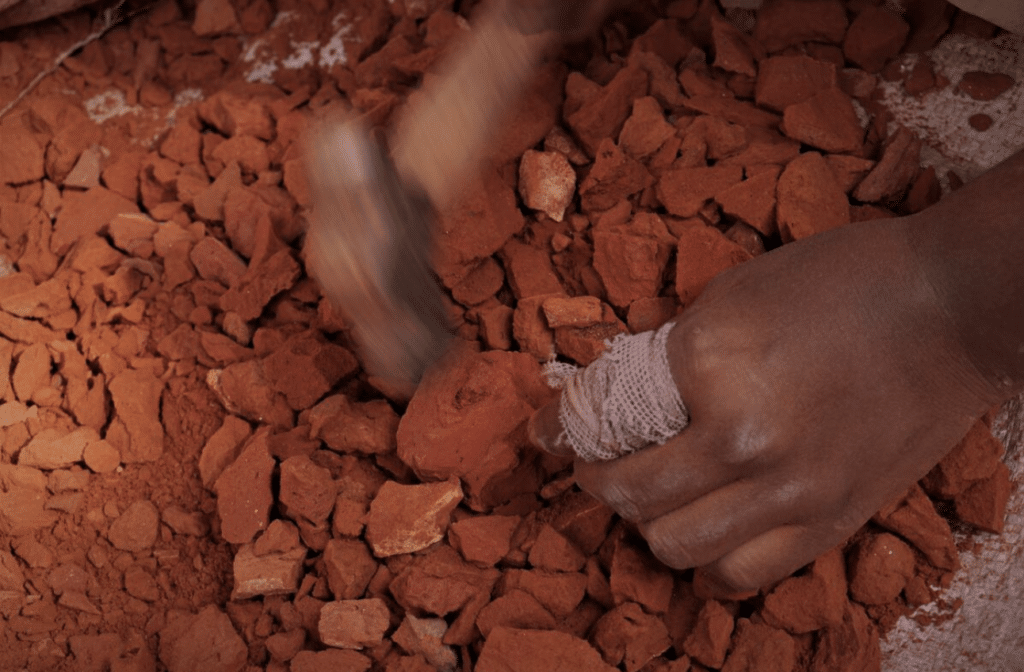– If your company relies on exploiting people to be profitable, you shouldn’t be in business
– If you don’t have the time or inclination to conduct due dilligence on your suppliers, you shouldn’t be in business.
– If you don’t know how to make sure your supply-chain is ethical, ask for help. Genuinely. Email us.
A lot of people have poured a huge amount of time and energy into advocating for the NZ Government to take action on modern slavery and exploitation. And without them, it’s unlikely any legislation would have come to pass at all.
But what was announced last week should have been so much stronger. NO ONE should be allowed to profit off the misery of others. And let’s be clear, it is a miserable existence for the estimated 49.6 million people living in modern slavery worldwide.
I remember my very first visit to a World Vision New Zealand project in Bangladesh more than a decade ago. I met a six year old boy called Abesh who spent all day, every day crushing rocks for roading with a tiny hammer.
Abesh was attending classes in the evenings so he could obtain some level of education and have a shot at a better future. At the time, between work, school, homework and household chores, he was getting on average, just four hours sleep per night.
Aotearoa is not immune to slavery and exploitation either. It’s just much more insidious here. According to the Ministry of Business, Innovation and Employment there were more than a thousand complaints of migrant exploitation in the 2021/2022 calendar year.
I have worked with small, medium and large enterprises to examine their supply chains, and I can tell you, it’s often the smaller ones, unfamiliar with the correct checks and balances, and under no obligation to undertake them, who lack sufficient visibility.
But under our new legislation, only businesses with an annual revenue more than $20 million will be required to report and outline actions taken to address modern slavery and exploitation. Something which seems totally inadequate when considering 97% of businesses in this country are SMEs.
In terms of SMEs who rely on international suppliers, some have argued they don’t have enough power or influence to effect real change. I’d argue that the SME community together, has more than enough sway. Further, we’re not the only country pushing for increased transparency and conditions for workers.
Kiwis want to know the products and services they’re purchasing are ‘ethical’. And I’m really proud they can be assured of this when they see the Eco Choice Aotearoa ecolabel. This year, we’ve begun phasing requirements around modern slavery and social accountability into our product and service standards, starting with metal products, carpet and HVAC units.
These new requirements are mandatory in order to obtain our certification – regardless of the size of the business. We’ve taken this step, because we’re committed to protecting our interconnected ecosystem. We all should be.
